It wasn't a line fished out of a zombie-romance flick. Nor lyrics of some mawkish glam rock song. It was literal to the core, delivered with utmost nonchalance by a first lieutenant nicknamed Mac as he thumbed towards the officer behind me.
The words sent a chill up my spine.
Just minutes prior, fellow traveler Edgar — who convinced me to book a flight at the last minute — and I arrived at the relatively young Jolo Airport. Mac and a slew of marines escorted us to a van that was to be our service for the four-day trip. It had to be a private vehicle, I was told, because the marines' pick up trucks are sometimes assaulted with grenades. I slouched on my seat and barely said anything throughout the ride to our first stop.
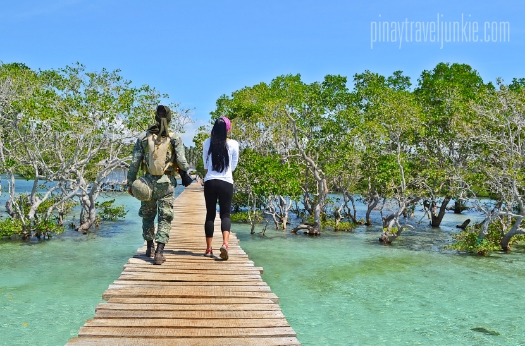
So in what context was Mac's statement raised then? I must have smelt
of fear. No thanks to the old lady I sat next to earlier aboard the
turboprop plane from Zamboanga whose uncalled welcome remarks consisted of a vague historical timeline, a list
of people who got killed within a three-kilometer radius from the runway where we were taxiing, and an advice to wear the hijab.
She rounded up with "Enjoy Sulu!". Enjoy. The verb seemed like a challenge.
She rounded up with "Enjoy Sulu!". Enjoy. The verb seemed like a challenge.
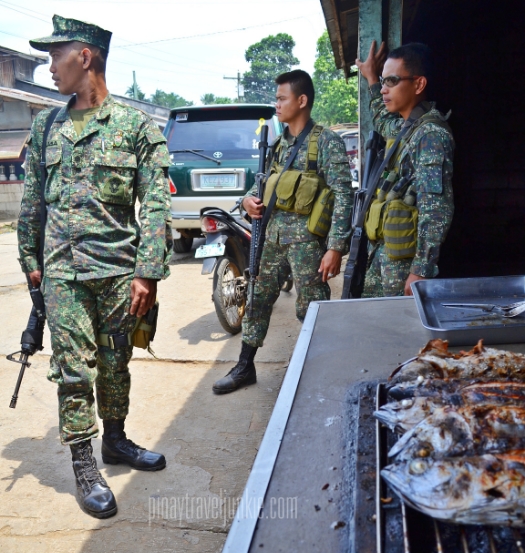
I attempted to sweep away morbid thoughts as I soaked up the jolt of
morning rush through my window. Jolo the capital, resembled other
Southeast Asian Islamic cities. Mosques, hijabs, halal
food stalls, discreet/nonexistent pubs. The streets were abuzz and
locals went about their business as if the socio-political turmoil in
the island province is no more than an urban legend.
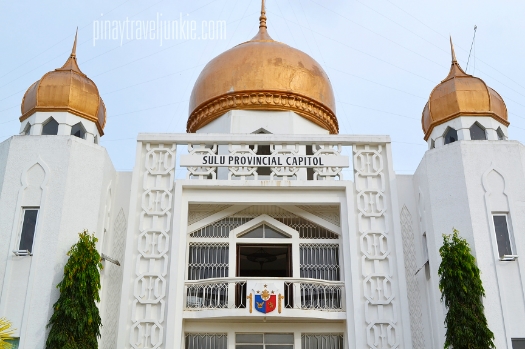
On our day one itinerary — and when I say 'itinerary' I mean a computer-printed itinerary in a spreadsheet layout, bulleted by military time — which Mac constructed, were sights that serve as prelude to cultural immersion. Museum, the provincial capitol, old Spanish towers. I'm usually not the itinerary kind of backpacker, but for that trip it was imperative to let go of the helm.

Beautiful. Deserted.
On our day one itinerary — and when I say 'itinerary' I mean a computer-printed itinerary in a spreadsheet layout, bulleted by military time — which Mac constructed, were sights that serve as prelude to cultural immersion. Museum, the provincial capitol, old Spanish towers. I'm usually not the itinerary kind of backpacker, but for that trip it was imperative to let go of the helm.
To follow whims. To entrust one's life.
My distress somehow faded as the day progressed. Never felt like I was under any kind of threat, and I wondered if escorts were really necessary or we were simply babied so the marines could mark a good impression.

Approaching sundown, we were rushed (they wouldn't risk joyriding in the dark) to Bud Datu where the 9th Marine Battalion was encamped. Had dinner and a few beers with the officers on a balcony overlooking the capital and a mountain territory of Islamist separatist group Abu Sayyaf, before slumbering in a room setup for visiting commanders.
That night was devoid of unease. Even though we chewed on stories of casualty, of sorrow, of boredom, of finding love in a seemingly hopeless place. I drew an early conclusion that Sulu, at least at that time, wasn't as menacing as I the outsider assumed. That the place could easily be explored by a brave few when not under fire.
In the next two days, unfortunately, my sentiments made a total turnaround.
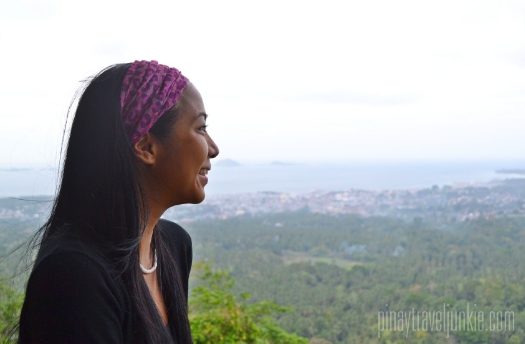
View atop Camp Bud Datu.
Mac began his day two prologue in the van with some random report. "Meron pa sigurong bente na andun sa bundok (There are probably twenty people left on the mountain.).", he was referring to kidnap victims. Apparently separatists and extremists are always on the prowl.
Why he shared this piece of information? I must have smelt of ridiculous courage. And he didn't want to take chances.
"He'll die for you.", the words from yesterday echoed and resonated.
My distress somehow faded as the day progressed. Never felt like I was under any kind of threat, and I wondered if escorts were really necessary or we were simply babied so the marines could mark a good impression.

Raja Baginda (reputed first Muslim ruler of Sulu) Shrine in Camp Bud Datu.
Approaching sundown, we were rushed (they wouldn't risk joyriding in the dark) to Bud Datu where the 9th Marine Battalion was encamped. Had dinner and a few beers with the officers on a balcony overlooking the capital and a mountain territory of Islamist separatist group Abu Sayyaf, before slumbering in a room setup for visiting commanders.
That night was devoid of unease. Even though we chewed on stories of casualty, of sorrow, of boredom, of finding love in a seemingly hopeless place. I drew an early conclusion that Sulu, at least at that time, wasn't as menacing as I the outsider assumed. That the place could easily be explored by a brave few when not under fire.
In the next two days, unfortunately, my sentiments made a total turnaround.

Mac began his day two prologue in the van with some random report. "Meron pa sigurong bente na andun sa bundok (There are probably twenty people left on the mountain.).", he was referring to kidnap victims. Apparently separatists and extremists are always on the prowl.
Why he shared this piece of information? I must have smelt of ridiculous courage. And he didn't want to take chances.
"He'll die for you.", the words from yesterday echoed and resonated.
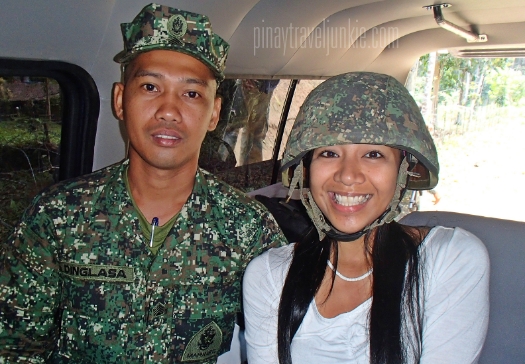
I put my guard back up. And it stayed on for the remaining days of our trip that was a mishmash of island hopping with fourteen marines, armed with heavy artillery; driving through no man's lands, and sometimes trudging on them; trying out wayside cafeterias, where the marines themselves are afraid to dine in; and crossing bamboo bridges in a water village to catch weavers of pis (local woven textile) do their magic.
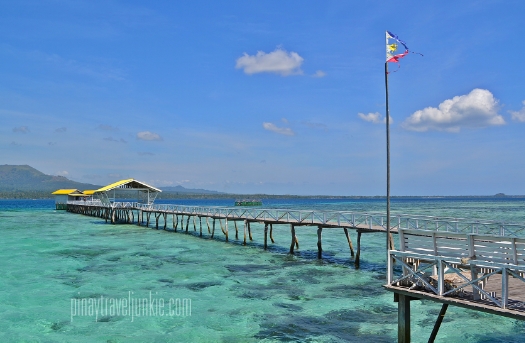
A looker that can mask bedlam. "Floating Cottage", Maimbung Bay.
We were introduced to a band of government officials, more marine officers, a member of the MNLF (Moro National Liberation Front), civilian women who "guard" their municipality at night (against invaders), and a community rebuilding their reclaimed area. Their choice of staying in their respective hometowns amidst the on and off unrest, to me, is unfathomable. They live in anxiety. Not the I-need-dibs-to-pay-the-bills kind of anxiety that attacks every month, but the I-could-lose-a-house-or-loved-one kind of constant anxiety. My first world issues here are nothing but trivial.
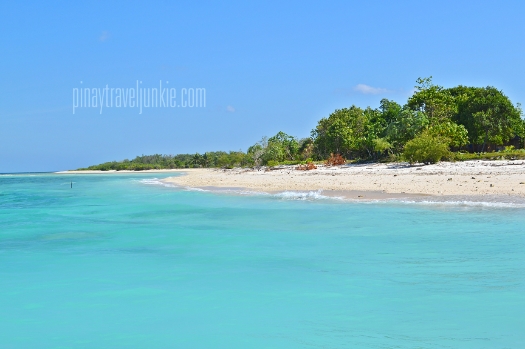
Kept pristine, perhaps by conflict. Teomabal Island.
Reconnaissance, or simply recon, is an exploratory mission to gather information about an enemy's territory. It wasn't my objective, but I underwent a recon of sorts. My enemies: doubt, fear, and an adolescent ignorance. I studied them. Overcame them. Handed my life to strangers who would literally catch a bullet for me, and I didn't even know their names. Lent my occasionally stuck up ears to folks whose narratives are bereft of social media lingo.
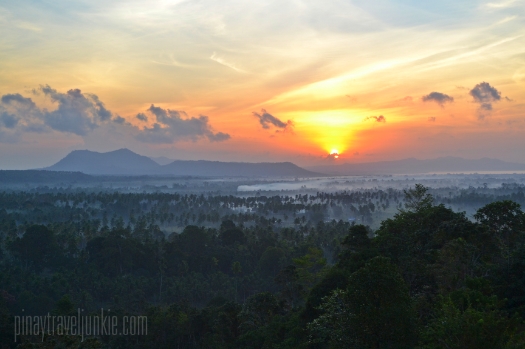
Sunrise view from Mt. Bayug Eco-Cultural Park. Depicting hope.
I tasted victory, but there was nothing to celebrate about. Similar to my first world issues, my personal victory is trivial here as well.
I left the province with a change in character. Akin to a soldier who left the battlefield... There's simply no turning back to my old self.

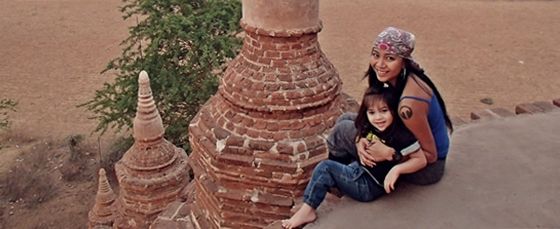
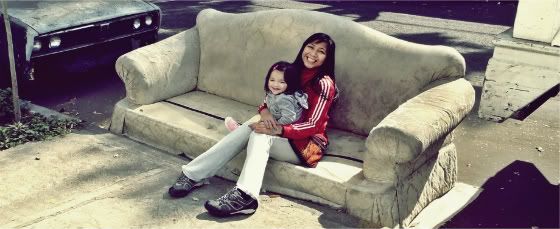
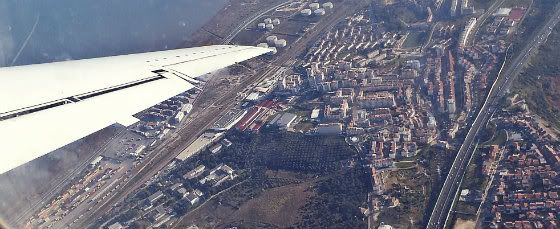

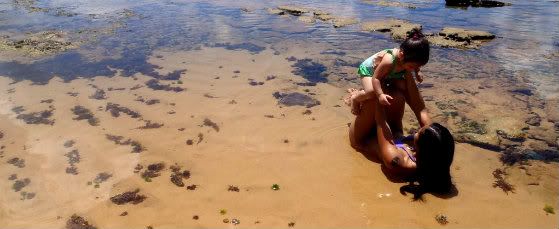
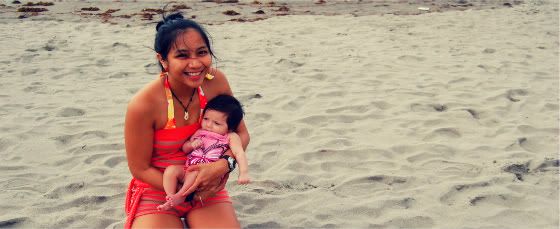
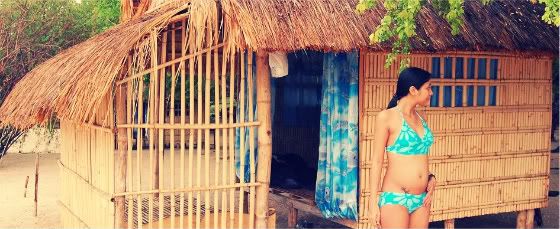
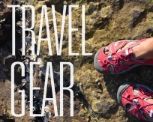
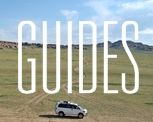







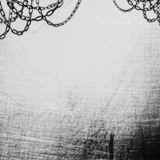

31 comments:
March 21, 2014 at 7:27 AM
awww. Buti na lang hindi nawala yung luma mong tawa :P
March 21, 2014 at 11:23 AM
I don't think I could be as bold, at least not until Lia turns 18. Or 21. My biggest fear is not the risk itself, but her losing her mother to risks.
Solid entry to WeGo's life-changing story. Good luck! :)
March 23, 2014 at 8:35 AM
I really admire your courage!
March 23, 2014 at 7:08 PM
Staycation buddy,, None other than my Honey bf.. because we often understand each other.I mean aside from being a bf,he is also a bestfriend,hubby and all.,
March 23, 2014 at 7:31 PM
Brave!
March 23, 2014 at 9:18 PM
Family, and friends as favorite staycation buddies is too mainstream.. Pwedeng a certain guy friend could become a favorite staycation buddy! Ahahahahaha.. =P
March 23, 2014 at 11:00 PM
Mine is my friend/s. We have the same taste on more things. Like in food, travel and leisure. I want to share this moment on them or on her, because we are like more than buddies. We are like a sisters and partners in crime. :D
March 23, 2014 at 11:09 PM
No other than Ms. Jaziel Oliveros. We love to travel and explore the Philippines.
March 23, 2014 at 11:51 PM
My favorite staycation buddy is my first boyfriend (for almost 7 years now:p)
March 24, 2014 at 8:28 AM
eto pala yung kwento ni sir Edgar noon sa amin hmmm pati daw truck driver pinapatos narin ng mga bandido ganun na sila ka desidido para magkapera.. sayang ang lugar ang ganda pa naman pero napapalibutan ng masasamang elemento
March 24, 2014 at 12:03 PM
Oo nga. Sayang talaga ang ganda ng lugar na iilang manlalakbay pa lang ang nakakakita :(
March 24, 2014 at 12:03 PM
More like, suicidal :p
March 24, 2014 at 12:03 PM
Aww, thanks Arlyne!
March 24, 2014 at 12:04 PM
That's so true. I thought of Luna the whole time and kept asking myself, "What have I gotten myself into?".
March 24, 2014 at 12:04 PM
Hindi na ata magbabago yun. LOL.
March 24, 2014 at 12:48 PM
Buhay nanay! :) Kapag single, go lang ng go eh no. Hehe. Sana matapos na yung gulo. Sayang ang lugar. So much potential.
March 24, 2014 at 2:31 PM
That sunrise photo though.:)
March 24, 2014 at 5:22 PM
My all time fave staycation buddy is hubby! We've been travelling together for almost 11 years now!
March 24, 2014 at 5:46 PM
tapang! pero this is one of those experiences that you will always remember and mga ikukuwento mo kay Luna pag laki nya.
Nabigyan mo na ba ng textmate si kuya? hehe
March 24, 2014 at 7:19 PM
Alam mo ba ang NGO's here sa Zamboanga need to pay a certain amount for security details and escorts?. Ikaw yung pumunta diyan sa lugar na yan and you should provide your own escorts di yung ginagamit mo yung militaries or marines to guard you imbes na bantayan ang seguridad ng jolo. Kaya walang asenso ang Pinas.
March 24, 2014 at 7:42 PM
I would if I was told to do so. But it was offered. If you have a problem with that, then you should address the Department of Tourism or the marines themselves.
And the marines were happy to be of service, especially the job was to help show how beautiful Sulu is to the Philippines and the rest of the world.
March 24, 2014 at 8:43 PM
It's <3!
March 24, 2014 at 8:43 PM
Shall I give Christine's number? :p
March 24, 2014 at 8:47 PM
pwede pwede! naalala ko sabe nya dapat na raw nya unahin ang pag-ibig kesa mag-travel ng magtravel. hahaha
March 24, 2014 at 11:27 PM
my staycation buddy is my mama! hehe.i wanna savor precious moments with her.
March 25, 2014 at 2:21 PM
Envious. Tawi-tawi, Sulu, and Sitangkai Island are dreamed destinations. Love how the mist teased the place.
March 25, 2014 at 2:23 PM
Envious. Tawi-tawi, Sulu, and Sitangkai Island are dreamed destinations. Love how the mist teased the place.
(Not to used to leaving comments) I'm that faceless guest below. :)
March 25, 2014 at 8:57 PM
Omaygahd! You visited my paaaaage! Thanks for passing by... *faint*
March 30, 2014 at 9:18 AM
hahahahahahahahahahhaha saka ka na magreklamo when you have the balls to use your real name.
May 4, 2014 at 1:14 PM
I love your blog! Thumbs up for your courage and writing. Grabe ang galing mo magsulat nakaka inspire ka. :)
May 4, 2014 at 9:33 PM
Wow. Thanks you so so much for the kind words. You made my day :)
Post a Comment